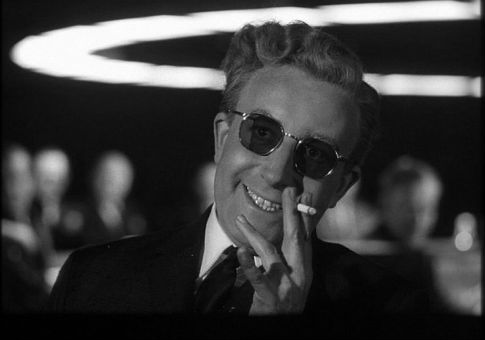A Newsweek op-ed published Tuesday suggested that the Trump administration's top national security officials should base U.S. nuclear policy on the plot of the comedy Dr. Strangelove, or: How I Learned to Stop Worrying and Love the Bomb.
"Why Tillerson, Mattis, Kelly, and Mcmaster Should Watch Dr. Strangelove Again," wrote Robert Brent Toplin, a professor emeritus of history at the University of North Carolina, Wilmington.
In Stanley Kubrick's 1964 satirical comedy, a crazed U.S. general sparks a nuclear war when he unilaterally orders a series of nuclear strikes on the Soviet Union. Unbeknownst to the United States, the Soviets created a "doomsday device" that triggers a nuclear detonation, destroying the entire world.
"Director Stanley Kubrick['s] film poked fun at Cold War hysteria, but he also delivered a poignant message. Humanity is at risk when an emotionally unbalanced leader can signal a nuclear attack," Toplin argued.
"In present-day Washington, D.C., it is not a crazed general that has many Americans worried; it is the president of the United States," he added.
Toplin endorsed a system that was put in place during former President Richard Nixon's final days in office, when Defense Secretary James Schlesinger secretly told military leaders to ignore any order for a nuclear strike without his confirmation and the approval of Secretary of State Henry Kissinger.
"Thousands of people in South Korea, Japan, and other countries could be endangered as well as many in North Korea and the United States," Toplin wrote. "Dr. Strangelove, a dark comedy of the Cold War, has something to say about this threat."
Ironically, despite urging American leaders to re-watch the film, Toplin got some of the plot details wrong.
"Dr. Strangelove shows a crazed U.S. military officer (General Ripper) mistaking an alert for the beginning of hostilities during the Cold War," he wrote.
In the film, General Ripper actually lies about receiving an alert. He orders the nuclear strike because of paranoid fears that the Soviets are controlling the population with fluoride in drinking water.
